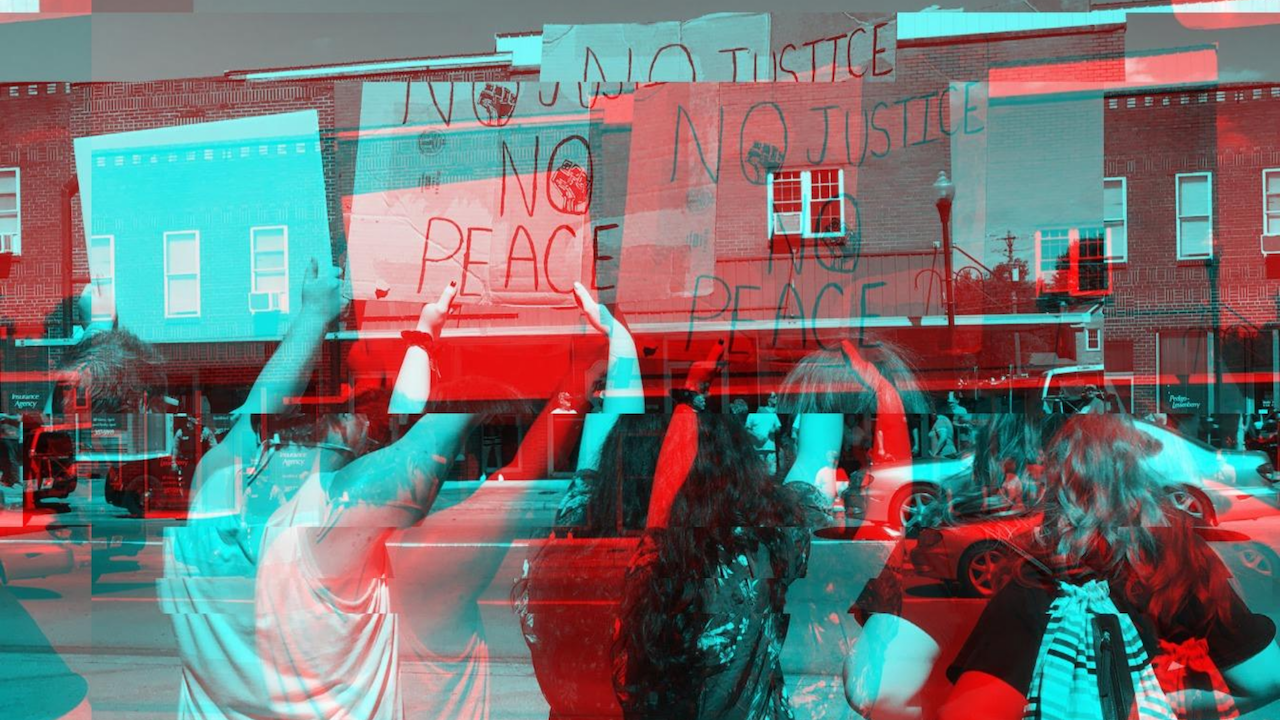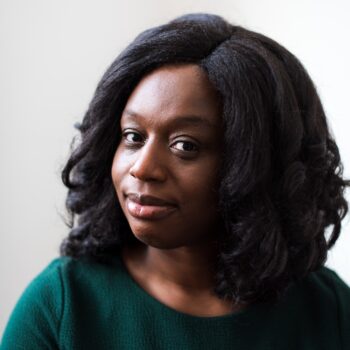This story was originally published as part of a joint series by The Forge and Prism: Organizing, Innovation, and Upheaval.
A fertile ground for organizing around justice and equity, rural communities are shifting the range of possibilities. Often positioned as exclusively white and conservative, rural communities have a deep history of organizing ranging across issues such as racial justice, voting rights, labor organizing, immigration justice, and criminal justice.
While organizing efforts in urban communities tend to dominate national headlines, to the extent they ever appear, rural communities have been engaged in some of the most transformative work.
“I think that, contrary to the myths of rural voters and rural communities in urban places, the reality is that most of us want the same things,” said Esperanza Tervalon-Garrett, campaign director for We Count Oregon. “Organizing looks different here and it’s really interpersonal.”
Leveraging the census for representation and community building
A women of color-led census campaign focused on hard to count populations, the We Count Oregon campaign has prioritized connecting with diverse communities in the state with campaign materials in 22 languages. Both Raíces, a Latinx-led grassroots organization based out of Umatilla County, Oregon, and Pineros y Campesinos Unidos del Noroeste (PCUN) joined the We Count Oregon campaign to make sure Latinx communities get the representation they deserve.
“Our goal mainly was to make sure that we’re getting represented the way that we need to right now [as] there isn’t a lot of Latino representation,” said Zaira Sanchez, census equity coordinator for Raíces. Sanchez said the limitations on face-to-face organizing during the pandemic have been difficult in a community that does not have reliable internet access. Also, not everyone in the community has the basic computer skills or backgrounds to engage in a primarily digital environment.
“It feels unfair because we know that we’re not going to reach everyone we want to reach and honestly, who is most important to reach … but we’re having deeper discussions as to how we make sure we reach these folk.” Sanchez said they have been able to work with local radio stations to get out information and obtained a regular spot on one station for a call-in to answer questions about the census.
As an advocacy organization and union, PCUN has served Oregon farmworkers and Latinx families and communities since 1985. “We’ve evolved into an advocacy and political organization working to elect people of color that look like us working for policies with the lens of the farmworkers and also building healthier communities within our own community,” said Enrique Ruiz, the field and data manager for PCUN.
Using Warm Springs, a city in central Oregon, as an example, Ruiz said that rural communities have more people of color than most people realize. For Ruiz, it’s also about breaking through the perception of Oregon as a white-dominated state dating back to the founding and prohibition of people of color living in the state.
“I think that’s what’s really hard to battle because the culture in Oregon is white dominated … and so when it comes to organizing it presents a lot of challenges because a lot of the concerns the Latinx folks bring are not heard,” said Ruiz.
“But you know we can make a huge difference, especially with OSHA, making sure that a lot of our community becomes citizens and through the legislature and having power and a presence there.”
Organizing against incarceration and criminalization in Mississippi
In Mississippi, organizers partnered with university students and faculty from across the country to form Mississippi Freedom Winter in response to ongoing human rights abuses in incarceration and immigrant detention in the state. This culminated in the Making and Unmaking Mass Incarceration conference, a three day national conference about prison abolition in Oxford, Mississippi.
“This last year was really intense [in] Mississippi in terms of carceral violence,” said Cam Calisch, a community organizer with Study and Struggle, the first phase of an ongoing project addressing incarceration and criminalization in Mississippi. “I think it’s 50 people who died in prison across the state. And last August there was the largest ICE raid outside of Jackson.”
The Immigrations Customs and Enforcement (ICE) raid referenced by Calisch took place in seven poultry processing plants in six rural towns. Close to 700 undocumented people were detained, many of whom were parents to young children. Some of those detained returned to work in the poultry plants, which has been strained by the COVID-19 pandemic.
“With COVID, a lot of people are living in even more desperate situations,” said Calisch. “It’s a great time to grow our souls and find our community and learn and struggle together to provide a framework that will ultimately contribute to liberation.”
Calisch framed the current moment as an outgrowth of the conference and local organizing.
“One [part] of the coming together has been bringing a translation team together, making sure that the information that we publish and that we put out as curriculum is accessible in both English and Spanish,” said Jarvis Benson, a member of the political education curriculum committee for Study and Struggle.
Benson said that while building out organizing efforts in rural communities can be tough, particularly when coupled with the issues of mass incarceration and immigration, it’s just about building relationships with people and connecting them to the issues.
“I think making those connections seems more complex, but it also can be easier and makes it easier to organize,” said Benson. “So when you have a conversation with somebody, you can connect abolition and care or abolition and ICE raids or the need for ending of punishment and crime and the idea of innocence in order to make us all free and to make a better world.”
Justice and equity are priorities from the ‘Hood to the Holler’
Groups like Rednecks for Black Lives and Hillbillies Against Hate have formed in the wake of the recent protests and uprisings as a way of showing solidarity, but also pushing rural communities to fight for racial justice. Based in Albany, Kentucky, Hillbillies Against Hate organized a ‘No Hate in Our Holler’ march in July after seeing local youth wanting to travel to Louisville to join protests. “No Hate in Our Holler” is a phrase and T-shirt design credited to eastern Kentucky artist Lacey Hale, who created the phrase in response to a neo-Nazi rally in Pikeville, Kentucky. After receiving feedback from people in the community, organizers with Hillbillies Against Hate decided to continue organizing so that people in the community had a space to have their voices heard.
“People were sending me stories through Facebook Messenger and saying, ‘Thank you so much for doing this,’” said LeMegan Shelton, co-founder of Hillbillies Against Hate. While Shelton was the subject of attacks and threats locally for her role in organizing the march, she says that white communities have a “moral obligation” to organize.
“I think it’s important that we get the message across that racism and classism are very closely linked,” said Shelton. “If we as poor working class white people are not also anti racist, then we are keeping ourselves oppressed as Appalachians.”
Pointing to the energy and enthusiasm of Charles Booker’s campaign for the U.S. Senate, State Rep. Attica Scott said there needs to be a recommitment to democracy that works for everyone as well as a recognition of the hopes, dreams, and concerns of young people, Black and Latinx people, other people of color, and rural communities in Appalachia and western Kenucky.
“It matters that we connect across our differences, but also find those places where we have similarities,” said Scott. “We all want to make a living wage out the gate. We all want to make sure that there is justice for our neighbors and for our friends.” Scott saw the conversations happening around Black Lives Matter as a continuation of work that has been ongoing in Kentucky. Last year, Scott led a dismantling racism workshop in Corbin, Kentucky, sponsored by Kentuckians for the Commonwealth. Corbin was the site of a race riot in 1919.
Scott said that she is encouraged by what she has seen take root across the state. “What I’m seeing and what I’m looking forward to seeing more of is that people are really organizing around [the questions of] how do we build community and how do we build power.”
Read the entire issue on Organizing in Rural America.

